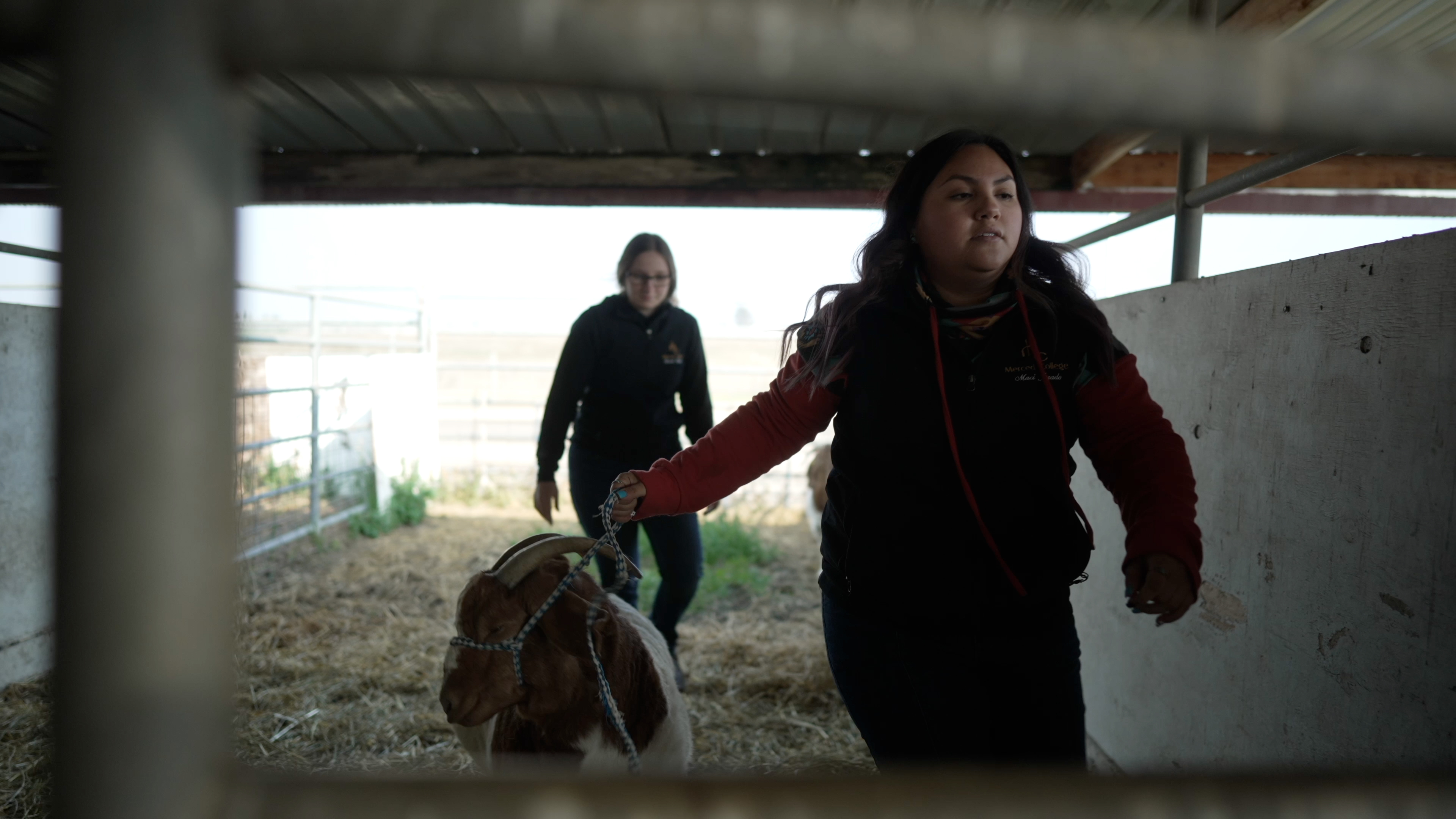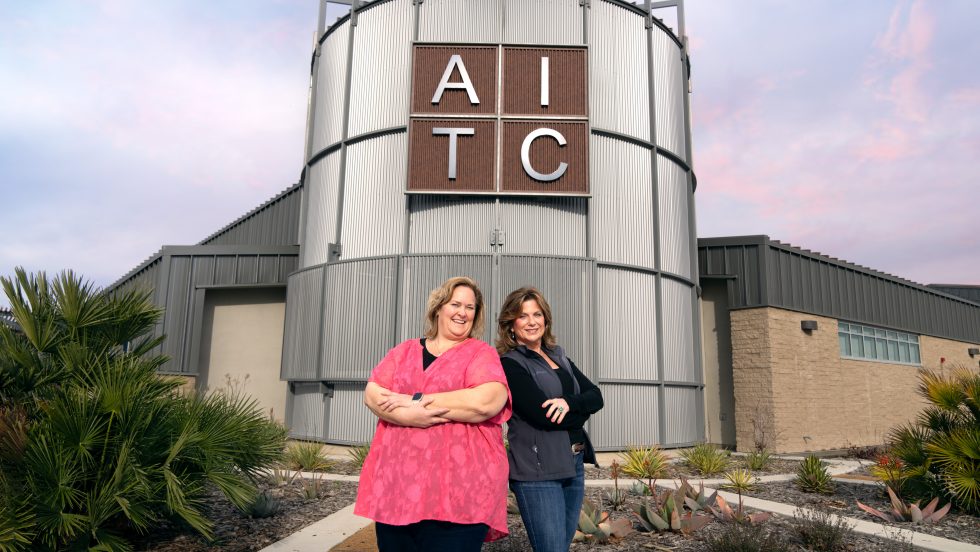Merced College Professor Nikki Maddux has been around long enough to see an important demographic shift on campus.
“Right now, in our animal science department, it’s 87% females,” Maddux said. “If you go back to the 1980s, it would be the other way around. Working with animals requires compassion, which draws women to careers as veterinarians and vet techs.”
The global agricultural workforce needs a shift like that for women. The United Nations Development Programme said in a recent policy brief that women will lead the movement for sustainable practices and improving gender inequality in the decades ahead. The stage is set in the United States, where female-operated farms accounted for 38% of agriculture sales and 43% of farmland in 2017, according to the U.S. Department of Agriculture.
The future of ag is more female, and also more flexible. Merced College is developing Competency-Based Education (CBE) as part of the Agrifood Technology and Engineering Collaborative (AgTEC) Initiative. The CBE curriculum at Merced College will empower skilled ag workers to earn certificates without taking on months of classwork they don’t need. They can take additional training or none, and when ready, prove skill mastery while taking an exam.
“The agriculture industry is very accepting of anyone with talent, especially with technology changing so fast,” Maddux said. “You used to have to do everything. Now ag is skill-specific. That’s opened up so many jobs.”
With faculty leaders like Maddux and Professor Kim Donaher, female ag students at Merced College have role models with decades of expertise to lean on.
Said Donaher, “Although I am proud of all of my students’ accomplishments, regardless of gender, I secretly cheer for the young women in our program who are thriving in their careers and shaping the future of our agricultural industry.”
In honor of Women’s History Month, we chatted with four former Blue Devils who are quickly making their mark in a wide variety of fields.
Sarah Baskins
Sarah Baskins’ family owns a farm, but she committed herself to the ag industry only after interning with the USDA Economic Research Service while at Stanislaus State, and completing research on growth in the fresh market tomato sector that was published in USDA Outlook.
Intrigued by changing trends in agriculture, the Merced College alumna now works as an Ag Investment Operations Analyst.
“It’s unique,” said Baskins, who has a B.S. in Agriculture-Agricultural Economics and an MBA from California Baptist University. “The industry is growing, even though small farms are not as profitable anymore. Investors are taking over. That can be a double-edged sword for our community. But we can still look at big investors as stewards of the land.”
Baskins, who has an MBA from California Baptist University, also teaches ag business at both Stan State and Merced College, and she volunteers with various industry organizations. A former California Farm Bureau representative and current Merced County Farm Bureau advocate, Baskins’ career is growing because of her connections.
“Because of the way our industry works, you also get so much out of networking,” she said. “All of that is essential to success, especially for women who want to get into leadership positions.”
Alejandra Valenzuela
Alejandra Valenzuela grew up not demanding a microscope, but aggressively asking her parents, “Why can’t we keep a horse in the backyard?!”
The budding veterinarian found her calling while taking a disease and parasites class at Merced College. Researching how bacteria breaks down plastics at Stan State turned her into a research scientist with a B.S. in Biological Sciences and a concentration in microbiology.
When she’s not working on her master’s at Stan State, she’s testing chickens for salmonella at the California Animal Health and Food Safety Lab nearby.
“The key for me was not giving up when I was told I wasn’t smart enough to continue in research,” said Valenzuela, a GED holder. “I was told it was a man’s world. I was told that, if I wanted to marry and have kids, I couldn’t continue this education. … I just said, ‘I’ll show you that I can.’”
Valenzuela will finish her master’s in May 2025 and start on her Ph.D. She’ll study either infectious diseases on the animal side, or move into cancer biology on the human side.
She’s earned her options, and her place.
“I’ve noticed the science community lacks people like me, and not just my culture, but other minorities,” the Latinx scientist said. “This community wants to change that now. I’m glad.”

Victoria Reyna
Victoria Reyna came to love animals while in 4-H and FFA, but began working to be a vet after taking a pre-veterinarian class at Chowchilla High. She studied animal sciences at Merced College, but switched to natural sciences to quickly finish her science prerequisites.
Then life intervened. Reyna pivoted and entered the Registered Veterinary Technician (RVT) program at Modesto Junior College. She spent 18 months logging 4,400 clinical hours, while taking night classes, and then aced the national RVT exam.
RVTs are like registered nurses, but for animals. Like RNs, they use many skills.
In her work at Ironhorse Vet Care in Dublin, a 24-hour hospital, Reyna executes everything from triaging pets to drawing blood, inserting catheters or IVs, intubating, and more. She also assists on difficult surgeries that other clinics won’t try.
“We see horrible cases,” Reyna said. “Knowing we can help animals get reunited with their families, and seeing how happy families are to pick up their pets, is enough for me.”
When not in Dublin, she’s shearing, vaccinating or doing artificial inseminations at both Modesto Junior College and Merced College. After six years in her field, she’s eager for Merced College to offer its own RVT program.
“Some of the students think vet techs work with puppies and kittens all day,” Reyna said. “It’s not just that. I’d advise them to get into a place working with animals first, and see if they truly want this life.”
Khloe Thomas
Khloe Thomas loved ag before she loved business. Then, she realized she could do both.
“I didn’t necessarily go into ag business wanting to be a financial analyst,” Thomas said. “I went into ag business trying to figure out who I was.”
Thomas gravitated to finance after taking Donaher’s ag business course at Merced College. At Fresno State, she interned at Rabobank, successfully helping structure an entire loan deal. She was hired after graduation in 2021.
At Rabobank, Thomas decides if agricultural companies and farms are good financial risks to receive loans. She works on high-end applications worth $5 million or more.
“We have to stay up with market trends and certain commodities to accurately price where a farm is at,” Thomas said. “It’s a volatile market. It’s always changing. … It’s challenging, but it’s fun.”
Thomas’s roots are in the land. So when she visits farms to do her due diligence, she understands what is at stake.
“Rabobank says it supports farmers financially and emotionally in every stage of life,” she said. “I hope to put sunshine in people’s eyes when my name pops up on their email. Having a gentle spirit with people is important to this work.”
